The Covid-19 pandemic is having a mass effect on entire populations which, combined with the element of the unknown, makes this situation close to what a war would feel like, Consultant Psychiatrist Dr Walter Busuttil told The Malta Independent on Sunday.
The COVID-19 pandemic has been taking over the world for almost a year and while the public is slowly getting accustomed to this new lifestyle, with the hope of a vaccine being available in the near future, medical personnel have not had any time to slow down. Healthcare workers across the world have had to take some tough decisions, in order to protect themselves, their loved ones and their nation, ones which have made them question their held moral beliefs, leaving a heavy dent on their mental health.
UK-based Busuttil related the stress that frontliners feel when taking ethically challenging decisions to the concept of ‘moral injury’ which originated from back in 1985 in traumatic stress studies within the military.
Notably, at the start of his career, Busuttil served in the Royal Airforce for 16 years with a special interest on Post Traumatic Stress Disorder (PTSD) and people exposed to severe psychological trauma. After leaving the military, he worked with adult survivors of sexual abuse and up until last week he served as the Director of Medical Services at Combat Stress, a military charity looking after veteran with mental health problems, taking up the role of Director of Research and Training instead.
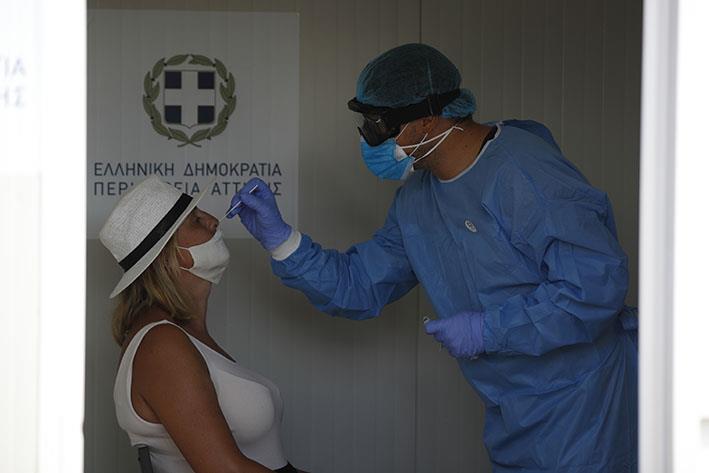
Health ministers across the world have referred to the pandemic as ‘a war against the virus’. How is this situation similar to a war?
Apart from likening the situation to a war, another similarity Busuttil mentioned is the moral injury that the military experience at war, which is now being felt by COVID-19 frontliners.
Busuttil said that moral injury is not necessarily a mental illness, however, it can be attributed to anxiety, depression, or severe mental illnesses like PTSD.
At the moment, it is being classed as a moral reaction to something that was supposed to happen but did not, causing the person to feel that they have to accept something they did even though it was not in their moral code.
One example Busuttil mentioned was military personnel working in peacekeeping who witness civilians being tortured but their rules of engagement on that day say that they cannot intervene. This would be a serious case, but there is a whole spectrum for the severity of moral injures.
Asked how this translates into the COVID-19 pandemic with regards to, he said that even the current situation presents a spectrum of moral injuries in frontliners; as is discussed in a report titled ‘Moral Stress Amongst Healthcare Workers During COVID-19: A Guide to Moral Injury’ (produced by Canadian and Australian Post Traumatic Centres) which Busuttil made reference to during the interview.
The mildest case would be a healthcare worker questioning whether they should keep working in this sector if there is a chance of getting infected and, in turn, risk infecting a vulnerable person in the family. A more severe case would be having to decide which patient gets treatment first when there are limited resources.
“Many healthcare workers might have encountered these situations and while it has not caused a mental disorder or illness, it has probably caused a lot of consternation, dilemma and internal moral debate.”
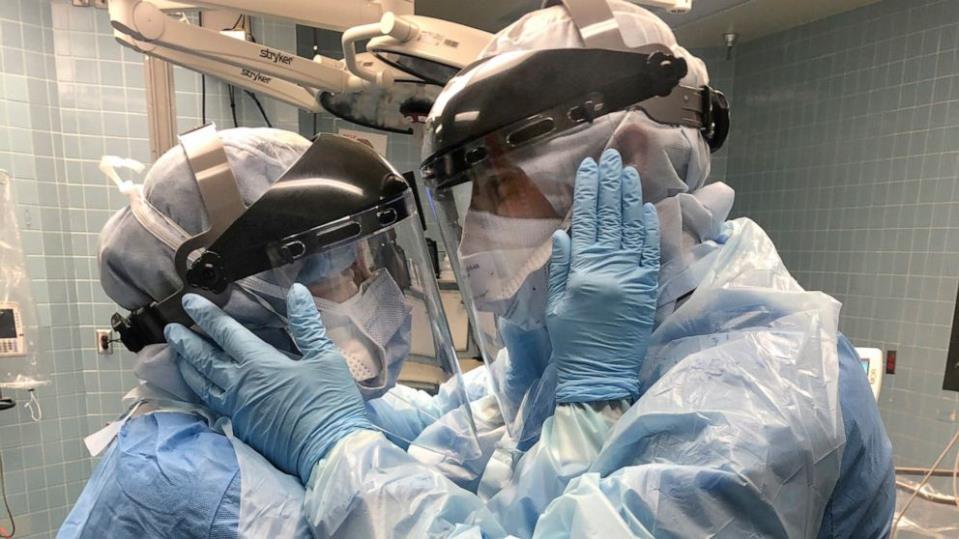
How can moral injuries be addressed?
"These dilemmas have actually always been present in the medical field but it is more evident now, so it is a good time for debate. This is important as moral injuries require an approach that will help all medical and hospital staff, including non-clinical workers like cleaners, since coming across moral injuries is inevitable due to limited human resources," Busuttil said.
This approach has been implemented in the military on three levels – organisation, leader and individual – and this also applies within today’s context, he explained.
The organisation level includes the top management and executive of the hospital, as well as the Health Ministry who must accept that this is an issue, but one that can be managed.
“It needs to be positively investigated and tackled in a way that ensures that the effects of a possible moral injury are not severe on the staff since, if it is, they will not be able to do their job properly and would hinder a whole nation.”
Busuttil believes in promoting a supportive culture within the workforce and workplace in both formally and informally. The more formal way involves well-being services, counsellors, policies that safeguard staff’s well-being as well as balanced work schedules so that the staff do not burn out since this could potentially lead to anger or depression.
At the leadership level, Busuttil said; “we have to ensure that leaders are properly trained and that they understand the importance of their role which should be reflected in how they communicate with staff.”
Leaders have to ensure that critical challenges and dilemmas are discussed within a group setting so that responsibility is shared, and nobody feels that something was completely their fault, thus minimising individual impact. Additionally, success should always be celebrated, even the smallest of victories.
Finally, individually, people have a responsibility for their own wellbeing. For example, with regard to off days, one should pace out their shifts rather than save everything for after the pandemic and risk burning out. Taking lunch breaks when possible, eating three meals a day rather comfort eating, while keeping an active lifestyle is also crucial.
“Above all this, it is important to speak about your day with someone you trust and get support from” he added. Busuttil suggested having someone stationed at the workplace who has an understanding of psychology for workers to confine in.
Asked what he would suggest people do to start this conversation with others, Busuttil said that a work culture that encourages opening up will always make it easier for people to speak up. “One can also go to a general practitioner if they do not want to confide in their employer out of fear of being stigmatised, but this is why it is important for a leader to acknowledge that this can happen to a percentage of their staff and that they need to be there to help.”
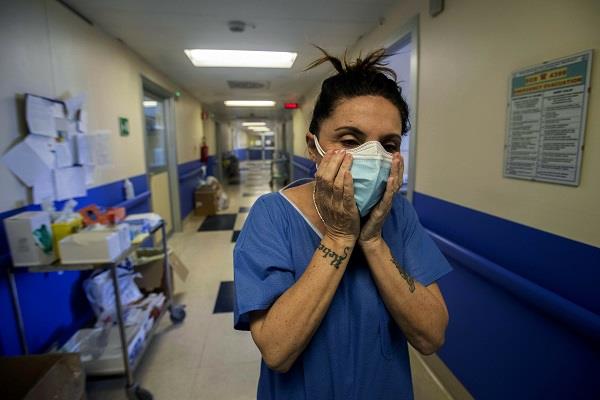
Friends and relatives of healthcare workers would obviously like to help in any way they can. What is it that they can do to support them?
Busuttil said that traumatic stress studies show how mental illnesses in those who do not receive support, like veterans coming back from war, get a million times worse. “This is why we organised the nation clap and celebrated the work that healthcare workers are doing.”
Similarly, he suggested that relatives of healthcare workers should encourage them to look after themselves. Frontliners should also be given the space they need rather than being bombarded with questions all the time, but simultaneously making them aware that there is someone willing to listen to them if needs be.
This also applies to key workers outside of the medical field such as bus drivers – “ideally, the employer and the government should have psychoeducational websites of how to relax, what mindfulness and mediation is and how to unwind.”
On a different note, Busuttil added that there are people who do not burn out or get moral injuries but rather thrive on difficult emergency, disaster situations. This makes them grow and become more resilient which helps others who are not as tough.
“We call this aspect, Post Traumatic Growth which is a new area in the Post Traumatic Stress world,” he said, reflecting back on encounters he had with war veterans and hostages who came out of their horrific experiences more grateful for what they have.
“These are stress-resistant individuals who seem to like a challenge, always feel in control when faced with adversity and welcome change. If we could identify them early on, they make the best leaders, the best commandos and best risk-takers; they are like superheroes.”
As the resilience of these individuals grows, they appreciate life in a different way, grow spiritually and live life in the moment rather than focusing on the past or future.
Busuttil believes that a lot of persons will emerge from this crisis in this way where they appreciate life more and even if they lost loved ones, they will appreciate them on a different scale.
“This does not mean that there will be no grief especially since there is a lot of blocked grief at the moment which will not be released until the end of the pandemic,” he added.
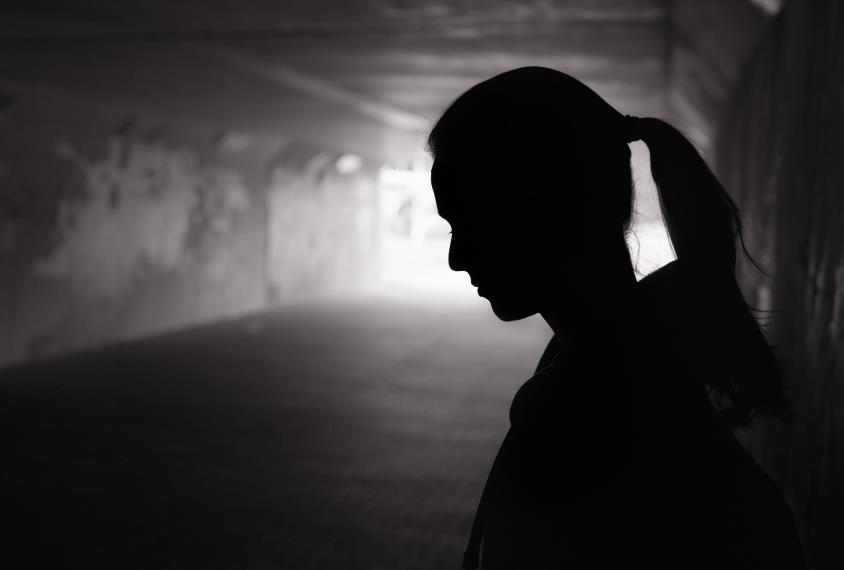
Is it possible for someone to make a switch from a negative to a more positive perspective or is it innate?
“I do believe that given the right support people will be more likely to look at the positive side. It is all about the way we communicate things and the leadership as well as the education we get is really critical. The organisation from top down can make a difference here,” Busuttil said.
He thinks that overall people will have a mix of perspectives, rather than completely negative or positive, even though this is possible as well.
What do you anticipate will happen if the COVID-19 situation is prolonged for a really long time?
“I think it gets harder, a lot of patients I have are not well and have not been for a long time. I have also been speaking with a lot of organisations in the UK where we experienced a lot of deaths in different sectors which left people feeling discouraged causing difficulties with keeping up the tempo.”
He explained that currently, countries like the UK and Malta who have not yet experienced a full blown second wave, have a window of opportunity to support their medical staff and key workers.
“People are getting tired and they are afraid of what might happen. If the government is giving directives on social distancing and hygiene, people should abide by them since while it is within everyone’s best interest, it will also prevent the health services from shattering to the point of disfunction,” he added.
“We just need to pace this out and take it day by day, enjoy what we have and try to look forward. Do not be selfish, listen to the guidance and try to keep the numbers down and hope for a vaccine to happen as soon as possible.”
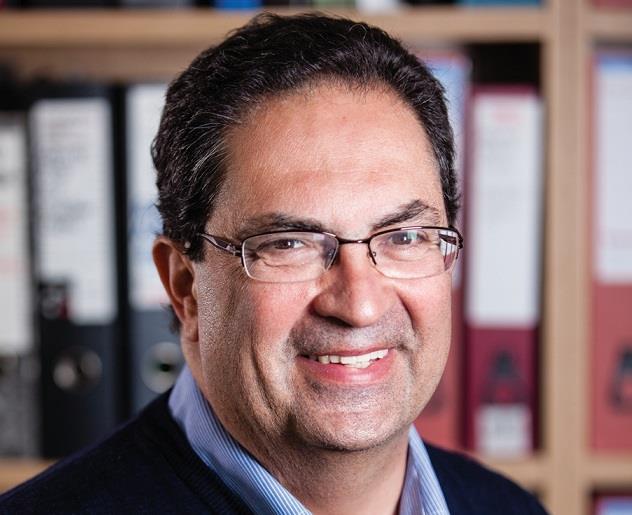
Biography
Dr Walter Busuttil MBChB MPhil MRCGP FRCPsych RAF (Retd) qualified in Medicine in Manchester in 1983. He joined the Royal Air Force as a medical student cadet and served for 16 years qualifying as a principal in general practice in 1989 and consultant psychiatrist in 1994 serving in the United Kingdom and Germany and on operational tours. He was part of the team that rehabilitated the British Beirut Hostages and was instrumental in setting up rehabilitation services for personnel returning from Gulf War I in 1991 with Post Traumatic Stress Disorder. He retired from the Royal Air Force at the rank of Wing Commander in 1997.
For the next 10 years he then worked treating retired uniformed service personnel and veterans. He also set up tertiary general adult and forensic psychiatric rehabilitation programmes for adult survivors of sexual abuse suffering from Complex PTSD. He was medical director for a women’s Medium Secure Hospital the Dene part of Partnerships-in-Care for three years.
He was appointed Director of Medical Services to Combat Stress the National Charity that provides mental health care to Veterans in 2007. He led the setting of up veterans’ mental health residential, outreach and community clinical services nationally expanding the clinical capability of Combat Stress as well as campaigning for and encouraging statutory NHS services to be set up for Veterans’ mental health. In 2014 he set up a research department at Combat Stress in collaboration with the Kings College Centre for Mental Health Research. This research group has investigated veterans’ mental health needs and evaluated treatment outcome and developed clinical services based on translational research. Walter stepped down as Director of Medical Services in August 2020 taking up the role of Director of Research and Training instead.
Walter was the Chair of the UK Trauma Group for five years until 2013 and a founder Board Member of the UK Psychological Trauma Society until 2013. He has been a member of the US based International Society for Traumatic Stress Studies since 1992.
Since 2015 he has regularly taken part in many strategic international round table discussions with other clinical and academic colleagues in the field of Traumatic Stress. He has been a member of the Five Eyes Mental Health Research Collaborative which advises the Veterans’ ministers of the UK, USA, Canada, Australia and New Zealand on initial interventions post critical incidents and disasters, combat and mental health rehabilitation, and Moral Injury in serving personnel and veterans’ treatment interventions. During the Covid Crisis he and his team have advised many health organisations in the UK on staff wellbeing.
While remaining a clinician first and foremost, he has published and lectured extensively about the prevention and rehabilitation of chronic and complex presentations of PTSD and related illness.